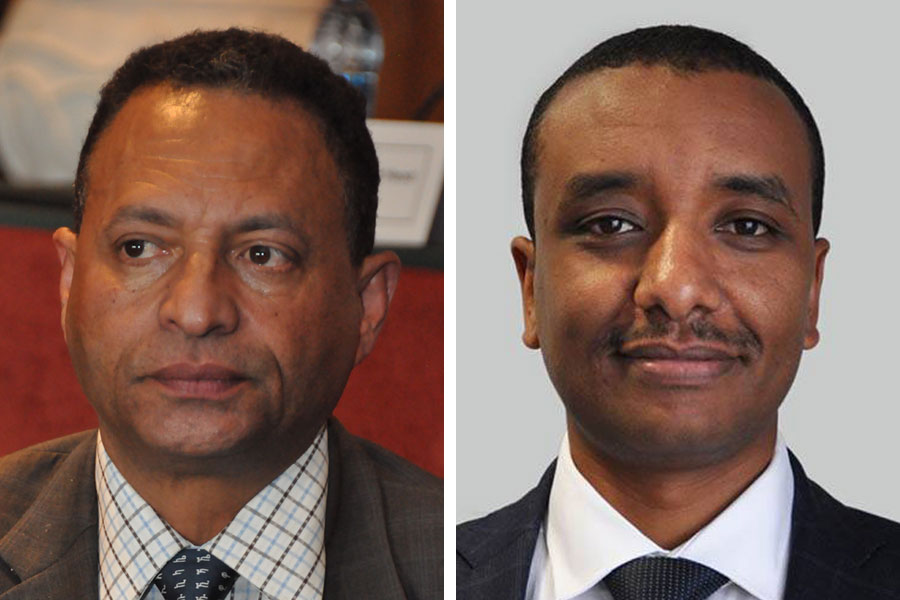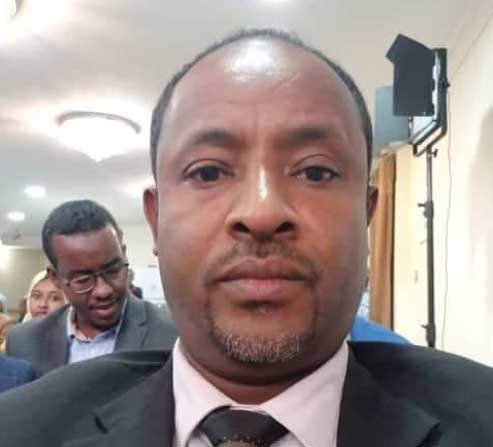
Radar | Sep 08,2024
Yohannes Ayalew (PhD), credited with steering the state-owned Development Bank of Ethiopia (DBE) away from financial turmoil and restoring its credibility, stepped down as president last week after a four-year tenure. Under his leadership, DBE emerged stronger, with a significantly reduced non-performing loan (NPL) ratio and a solid financial foundation.
Yohannes described his time at the policy bank as one of intense dedication, acknowledging he had no leisure time.
"I gave it my all," he told Fortune.
Five years ago, DBE was on the verge of collapse, burdened by an alarmingly high NPL ratio. Under Yohannes’ stewardship, the Bank's NPL ratio plunged from a staggering 57.6pc to 6.5pc—nearly half the central bank's requirement. He attributes this success to a disciplined approach to loan management, including strict repayment schedules, prohibitions on interest capitalisation, and swift action on delinquent loans. Yet, challenges in collecting unpaid loans from rain-fed agriculture investments prevented the NPL ratio from reaching his target of 2.7pc.
"We’ve mitigated substantial risks," Yohannes said.
DBE boasts a capital base of 39.7 billion Br, second only to the Commercial Bank of Ethiopia (CBE). The turnaround began when the Council of Ministers approved a crucial capital injection of 28.5 billion Br, followed by the National Bank of Ethiopia’s (NBE) directive, which required commercial banks to purchase DBE bonds worth one percent of their annual loans.
DBE’s debt portfolio is not the only improvement. The Bank's profitability and asset quality have also seen substantial gains. Through government injections and financial restructuring, DBE raised its capital to 40 billion Br.
Yohannes is particularly proud of the Bank’s contributions to industry and agriculture, with loans approved totalling 57 billion Br and 20 billion Br disbursed in the past fiscal year. He also revived lease financing, growing allocations from 900 million Br to 24 billion Br. However, being unable to fully meet 180 billion Br worth of loan requests, including those from Small & Medium Enterprises (SMEs) weighs on him.
His tenure saw strengthened relationships with international financiers, including the World Bank and International Monetary Fund (IMF), both key partners in DBE’s recovery.
Yohannes departs without regret, confident in the foundation he has laid for DBE’s future.
A graduate of Addis Abeba University with undergraduate and master’s degrees in economics, Yohannes earned his doctorate from the University of Sussex, England. His career began at the central bank in the research department, where he later served as vice governor and chief economist for nine years. He has also held leadership roles at the Policy Studies Institute (PSI), as deputy director of finance and macroeconomy, and served two terms as board chairman and country director for Africa Trade & Investment Development Insurance.
With no plans to return to government service, Yohannes intends to focus on his passion for finance and economics in the private sector. His parting advice to his successor, Getachew Waqe, was to maintain integrity and continue strengthening the policy bank's capacity to support industries.
PUBLISHED ON
Sep 08,2024 [ VOL
25 , NO
1271]

Radar | Sep 08,2024

Fortune News | Aug 07,2021

Fortune News | Dec 19,2021

Fortune News | Feb 04,2023

Viewpoints | Sep 10,2023

Fortune News | Jan 30,2021

Radar | Mar 11,2023

Featured | Aug 10,2019

News Analysis | Dec 15,2024

Fortune News | Sep 01,2024

Dec 22 , 2024 . By TIZITA SHEWAFERAW
Charged with transforming colossal state-owned enterprises into modern and competitiv...

Aug 18 , 2024 . By AKSAH ITALO
Although predictable Yonas Zerihun's job in the ride-hailing service is not immune to...

Jul 28 , 2024 . By TIZITA SHEWAFERAW
Unhabitual, perhaps too many, Samuel Gebreyohannes, 38, used to occasionally enjoy a couple of beers at breakfast. However, he recently swit...

Jul 13 , 2024 . By AKSAH ITALO
Investors who rely on tractors, trucks, and field vehicles for commuting, transporting commodities, and f...

Sep 13 , 2025
At its launch in Nairobi two years ago, the Africa Climate Summit was billed as the f...

Sep 6 , 2025
The dawn of a new year is more than a simple turning of the calendar. It is a moment...

Aug 30 , 2025
For Germans, Otto von Bismarck is first remembered as the architect of a unified nati...

Aug 23 , 2025
Banks have a new obsession. After decades chasing deposits and, more recently, digita...